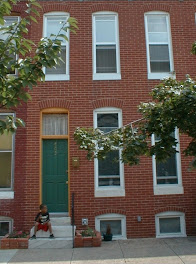By: Alicia Schuller, Marketing Coordinator, NHS of Baltimore
A study recently conducted by the National Fair Housing Alliance (NFHA) shows that housing discrimination is rising to monumental heights due to the foreclosure crisis and the availability of false internet ads. Ad content that would normally be regulated by the guidelines of the Fair Housing Act goes unabated on the internet due to the inability to regulate internet content.
NHS of Baltimore is urging current and potential homeowners to be aware of rising internet scams and to report any incidences of housing discrimination. As the NFHA points out, there have been more reports of housing discrimination over the past year than ever before seen. The housing crisis has created a perfect storm of sorts, where lenders preyed on certain populations for subprime loans- consequently forcing those people back into the renters’ market, making them vulnerable to housing discrimination.
If you feel you have been a victim of predatory lending or housing discrimination, there are several things you can do to bring the perpetrators to justice.
Keep all records- it is very important that you maintain all records of transaction between you and the mortgage lender, housing provider, insurance company, etc… Also be sure to have the address of the company/individual, as well as the address of the property in which you were interested in.
Contact your local fair housing agency- the NFHA has agencies located all over the U.S. Contact them to file a formal complaint. Click here to find the nearest location.
File a complaint with HUD- it is the responsibility of the Department of Housing and Urban Development to investigate and prosecute all complaints of housing discrimination. Be sure to file a separate complaint with them. There is no fee to file a complaint with HUD or the NFHA. Click here to file a complaint.
If you are uncertain whether you have experienced housing discrimination, there are several resources available to help you. You may visit the NFHA website for easy access to laws including the Fair Housing Act, the Equal Credit Opportunity Act, the Truth in Lending Act and many others. Furthermore, you may also access previous court cases, which set precedent for future housing violations.
Remember, housing discrimination can come in many forms and happen in any setting. According to Move Smart.org, “If you are denied the opportunity to rent or buy housing, or experience differential treatment in your attempt to inspect, buy, or view a property of your choice, you may be a victim of housing discrimination. Other signs to watch for are possible different terms and conditions in renting or buying property, or discouragement from the property or neighborhood in which you were interested.”
skip to main |
skip to sidebar
+for+blog.jpg)
.JPG)
.jpg)
Baltimore boy enjoys the day on his front step

.JPG)
Potential homeowners attend our Homebuyer Education Class
.JPG)
Executive Director, Felix Torres Colon accepts governor's committment to excellence award

Board Chair, Ron Huffman helps seal the foundation of homeownership
Helping you endure these trying times by offering vital tips and information about homeownership and financial fitness.
FACING FORECLOSURE?
We can help. NHS of Baltimore is one of the leading foreclosure prevention nonprofits in the Baltimore region. We offer HUD certified counseling, loan modification mediation and refinancing. Get help today! 410-327-1200
NHS of Baltimore Website
Take our Homebuyer Education Class Online!
+for+blog.jpg)
- Neighborhood Housing Services of Baltimore Inc.
- For more information on our homebuyer education classes, foreclosure prevention, or to donate, please visit our website or call, 410-327-1200.
Blog Archive
-
▼
2009
(98)
-
▼
June
(13)
- NeighborWorks America and Member Organizations Inc...
- How House Plants Can Improve Your Indoor Living En...
- Photos from NeighborWorks Week 2009- neighborhood ...
- How to Sell Your Home During a Recession
- How Homeowners Can Combat Blight and Crime Brought...
- NHS of Baltimore Warns of Rising Housing Discrimin...
- Street Trees: Why They Benefit You as a Homeowner ...
- PRESS RELEASE: NHS to Host Free Homebuyer Educatio...
- More Money Available to First Time Homebuyers!
- NHS and Park Heights Residents Brighten Up Park Ci...
- NHS Provides the Tools for Successful Homeownershi...
- Be Green: 6 Simple Ways to Cut Down on Your Energy...
- Ground Rent: Know Your Rights and Responsibilities
-
▼
June
(13)
.jpg)
Baltimore boy enjoys the day on his front step

Potential homeowners attend our Homebuyer Education Class
Executive Director, Felix Torres Colon accepts governor's committment to excellence award
Board Chair, Ron Huffman helps seal the foundation of homeownership



